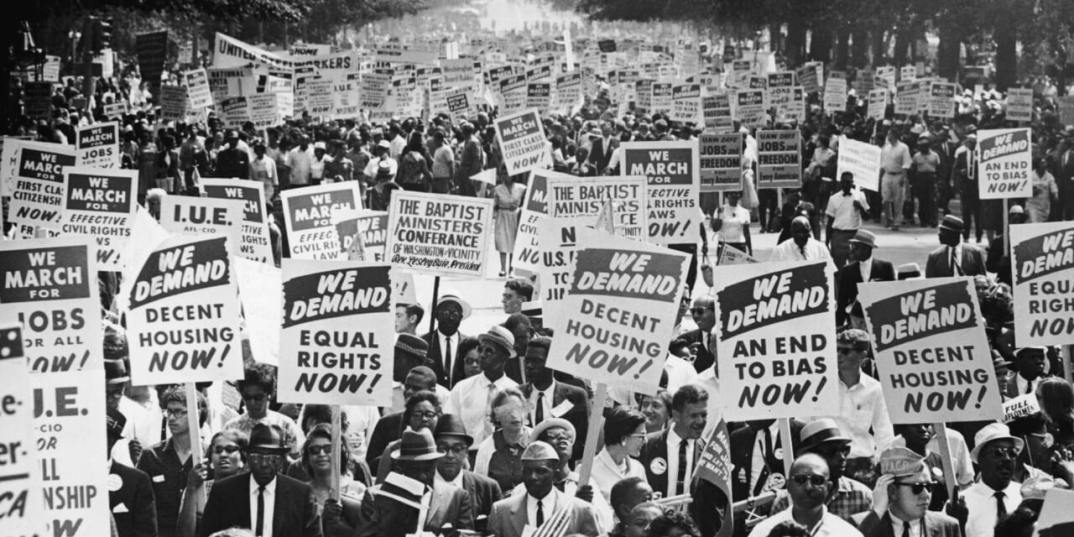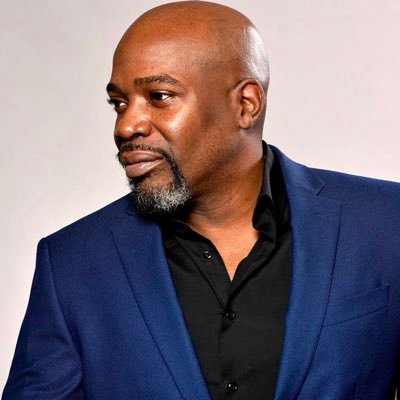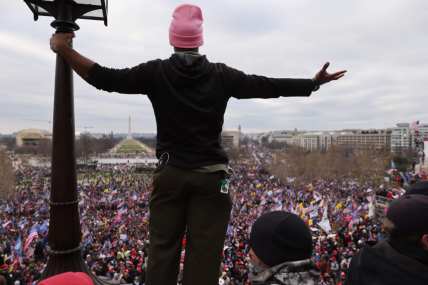Democracy is the answer
OPINION: Why can't the people fighting for reproductive rights, economic inclusion, LGBTQIA equality or gun reform see that their goals coincide with the long struggle movement for Black liberation?

Editor’s note: The following article is an op-ed, and the views expressed are the author’s own. Read more opinions on theGrio
In the November 1942 issue of Survey Graphic magazine, Asa Philip Randolph—the organizer who may very well be the most important civil rights figure in American history—proposed an event based on an unthinkably revolutionary idea.
Black people could actually turn America into a democracy.
A few months after winning the NAACP’s highest honor for forcing the president of the United States to ban discrimination in the defense industry, a decade before he dispatched his allies to teach the nuances of peaceful protest to a youngster named Martin Luther King Jr.; three decades before he pledged to fight laws against abortion, prohibiting “by law or social sanction, sexual behavior between consenting adults,” Randolph suggested that the fight for Black equality could become a tool for changing the world.
“A community is democratic only when the humblest and weakest person can enjoy the highest civil, economic, and social rights that the biggest and most powerful possess,” Randolph explained. “By fighting for their rights now, American Negroes are helping to make America a moral and spiritual arsenal of democracy. Their fight against the poll tax, against lynch law, segregation, and Jim Crow, their fight for economic, political, and social equality, thus becomes part of the global war for freedom.”
Democracy has always been the answer.
The Oxford English Dictionary, the most authoritative source on the English language, defines democracy as a “government by the people; that form of government in which the sovereign power resides in the people as a whole, and is exercised either directly by them…or by officers elected by them.” To be fair, America has never been interested in conforming to that definition. Slavery, Jim Crow, segregation, voter suppression, felon disenfranchisement, the Electoral College, the Senate filibuster and gerrymandering are but a few examples of our national aversion to creating a “social state in which all have equal rights, without hereditary or arbitrary differences of rank or privilege.” Yet, the crusade for equality has been historically ignored as an antidote for America’s problems.
Although many see mass shootings, abortion, LGBTQIA rights and wealth inequality as separate issues, we could hurdle many of the obstacles obstructing true liberty if America’s white majority were willing to join the centuries-old struggle for racial equality. After all, what is Black liberation if not a centuries-old fight for democracy?
The women lamenting the Supreme Court’s decision to put white legislators in charge of women’s reproductive choices is a prime example. While most white Americans believe abortion should be legal in most cases, a majority of white Americans (including white women) also voted for anti-choice Republican candidates in the last three national elections. Democracy is the answer to reproductive rights.
According to Pew Research, the vast majority of the American electorate support common-sense gun control laws, including background checks, bans on high-capacity magazines and restrictions for people with mental illnesses. Nearly three in four Americans also agree that gun violence is a ‘big problem.” As state lawmakers roll out anti-LGTBQ legislation measures across the nation, a March poll by the Public Religion Research Institute shows that 79 percent of Americans support laws that protect gay, lesbian, bisexual and transgender people against discrimination. The only thing preventing these policy positions from being enshrined into law is that the Senate filibuster prevents majority rule.
The white women who fight for reproductive rights while voting for anti-choice candidates see Black-led grassroots groups as separate entities—even when organizers like LaTosha Brown specifically explain that Black Voters Matter’s work to expand voting rights and access to ballots “intersect with race, gender, economic and other aspects of equity.” Can anyone explain why the Bernie Sanders supporters who claimed income inequality was their top issue aren’t involved in the fight for reparations? Were the people who occupied Wall Street too busy to show up at Rev. William Barber’s Poor People’s March? When a police officer shoots a Black person in the face, where are all the people who pour into the streets to demonstrate against gun violence? When they “march for our lives,” Does “our” mean “white?”
I am not just airing grievances by asking these questions; I am actually confused about the strategy. Black organizations have been fighting for these issues for years under the banner of democracy. They have already-existing infrastructures and political bases that could benefit these stratified majority-white movements. Black voters are more likely to support gun control, abortion and LGBTQ rights. Why wouldn’t someone jump at the opportunity to take advantage of that?
That Americans were not interested in fighting for domestic democracy is no surprise. After all, the lynching epidemic of the Red Summer was caused, in part, by white animosity against Black veterans who returned from fighting Hitler’s fascist global agenda. The white women suffragists expelled Black women from their movement. The movement that birthed the civil rights movement, was inspired, in part, by Black World War II veterans returning home to inequality, discrimination and racial terrorism at the hands of the “greatest generation,” including pro-segregationist veteran George Wallace, who vowed, “segregation now, segregation tomorrow, segregation forever.”
There has never been a millisecond of American history where white lives didn’t matter, so anyone who truly believed that “all lives matter” would support the movement for Black lives, which, by proxy, means they would also support common-sense gun control, ending wealth inequality and eliminating voter suppression. Of course, gerrymandering is a form of voter suppression, so ending it would create a more representative judiciary. Furthermore, a more representative judiciary would likely preserve a woman’s right to terminate a pregnancy and protect the right to vote, which would create more diverse legislatures that are less likely to draw the gerrymandered voting districts that result in voter suppression.
See how it works?
On August 28, 1963, after 20 years of planning, A. Phillip Randolph’s proposed event became a reality. As director of the March on Washington for Jobs and Freedom, Randolph gave the opening remarks to a crowd of 250,000 attendees. Although the final speaker of the march is often quoted during any discussion of racial reconciliation, a week earlier, when pollsters at Gallup Incorporated surveyed 1,558 Americans on their feelings about the March on Washington, 60 percent said they had an unfavorable opinion. Maybe this is why, according to the National Park Service, nearly three in four participants at the March on Washington were Black. Perhaps this also explains why King felt the need to justify the reasons why the event was so necessary.
“And so we’ve come to cash this check, a check that will give us upon demand the riches of freedom and the security of justice,” said King. “We have also come to this hallowed spot to remind America of the fierce urgency of now. This is no time to engage in the luxury of cooling off or to take the tranquilizing drug of gradualism.
“Now is the time to make real the promises of democracy.”

Michael Harriot is a writer, cultural critic and championship-level Spades player. His book, Black AF History: The Unwhitewashed Story of America, will be released in 2022.
TheGrio is FREE on your TV via Apple TV, Amazon Fire, Roku, and Android TV. Please download theGrio mobile apps today!


